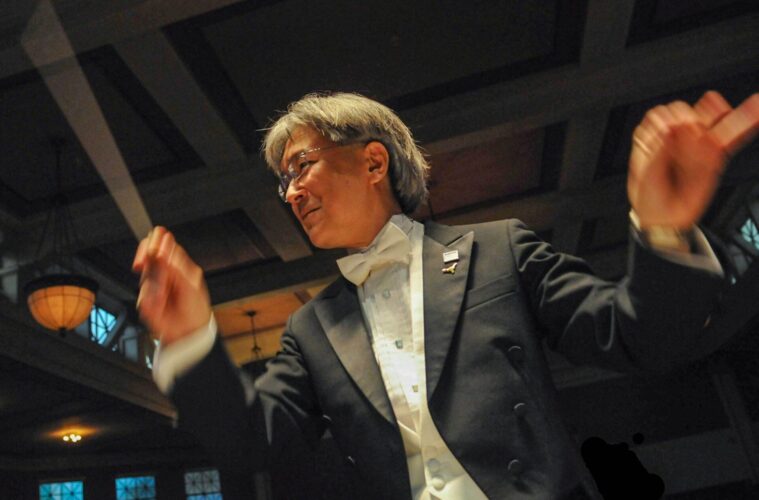Classical music can have the reputation of being somewhat stuffy, a relic of the past confined to big city stages. Yoichi Udagawa, conductor and musical director for the Cape Ann Symphony Orchestra, is out to show how misguided that idea really is.
“We think of it as a living art with something to say to people today,” says Udagawa. “It’s full of passion, it’s full of energy, and it can be very exciting in the here and now—and we hope that we get that across in our performances.”
For more than 70 years, in fact, the Cape Ann Symphony Orchestra has been gathering talented musicians to bring classical works to life for audiences on Cape Ann and the North Shore.
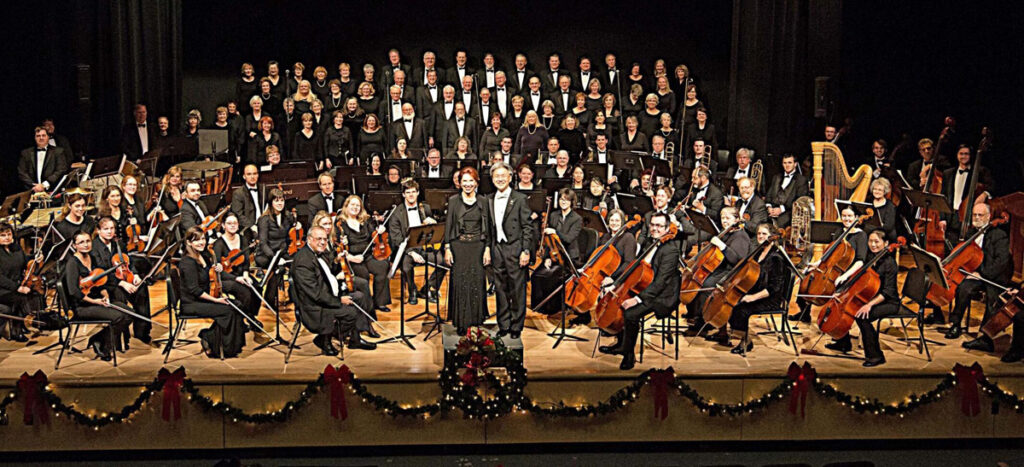
The symphony has been driven by a mission to share music since its beginning in 1952 under the name the “Gloucester Civic Symphony Orchestra.” The group started as a musical outlet for local couple Sam and Helen Gordon, both accomplished amateur musicians who wanted, they said, to share “the music you love by the people you know.” For its first 28 years, all performances were free to the public, and when fundraising fell short, the Gordons made up the difference from their own pockets.
Since then, the symphony has evolved from a group of mostly amateur musicians to a fully professional orchestra that is a staple of cultural life on Cape Ann. Tickets are no longer free, so the organization can pay performers and staff, though prices are kept accessible. The symphony stages three full orchestra concerts annually as well as several holiday pops performances before Christmas. A few times each year, a smaller group of orchestra members perform chamber music pieces they choose themselves, for the Musicians Unleashed series.
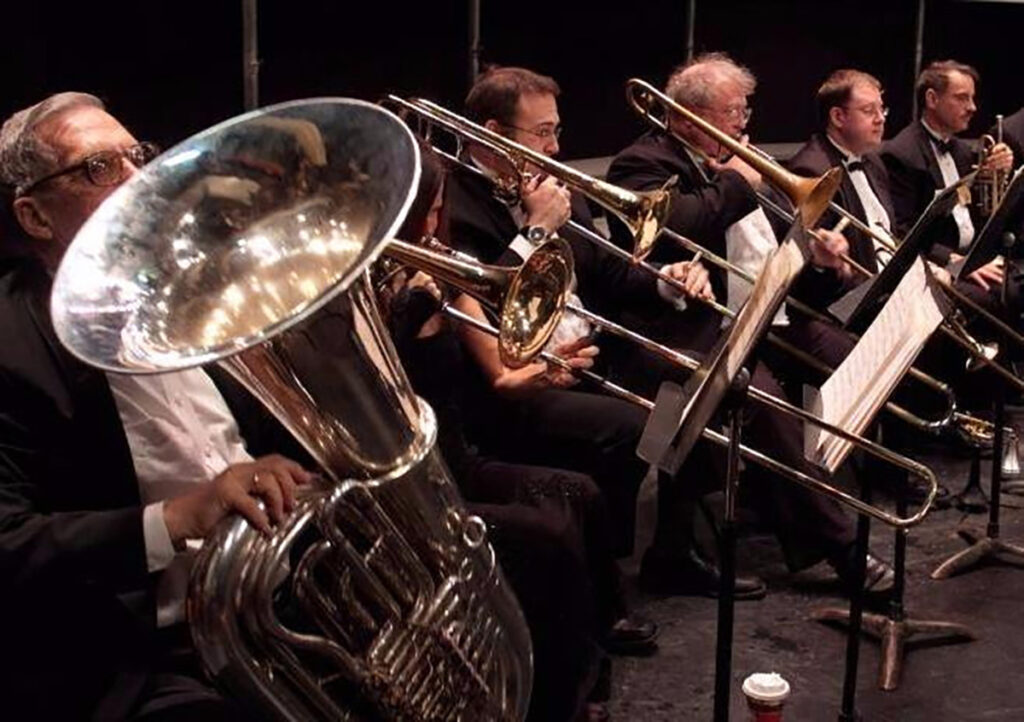
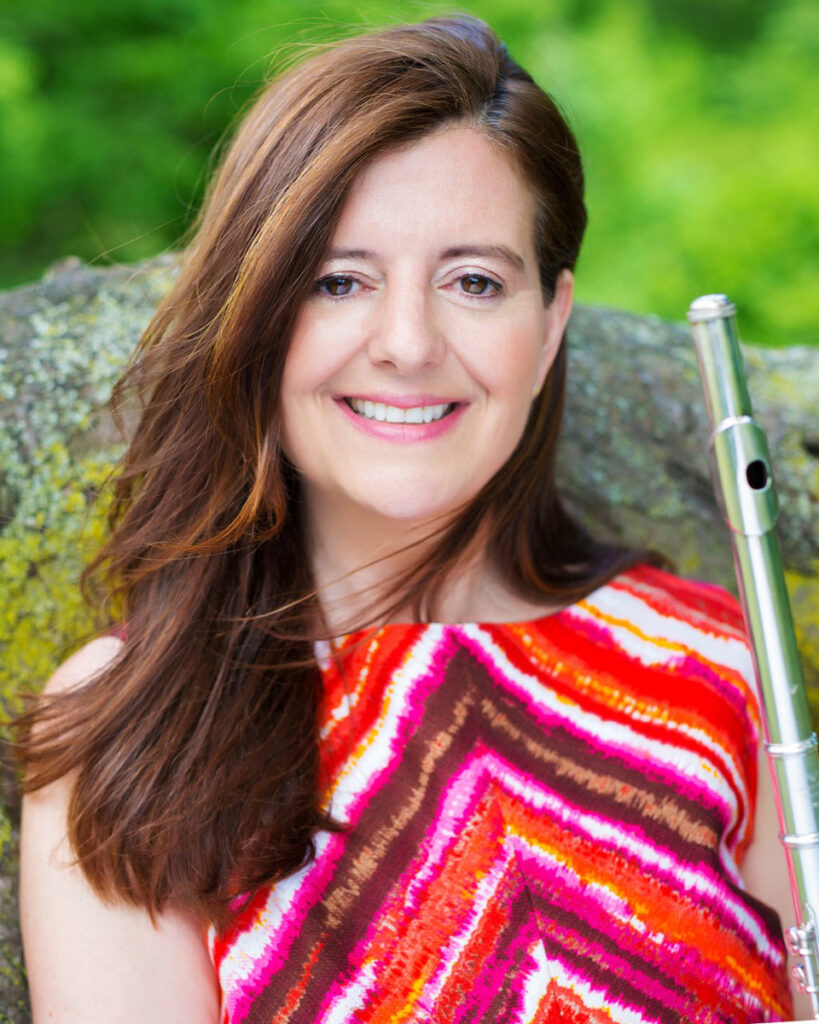
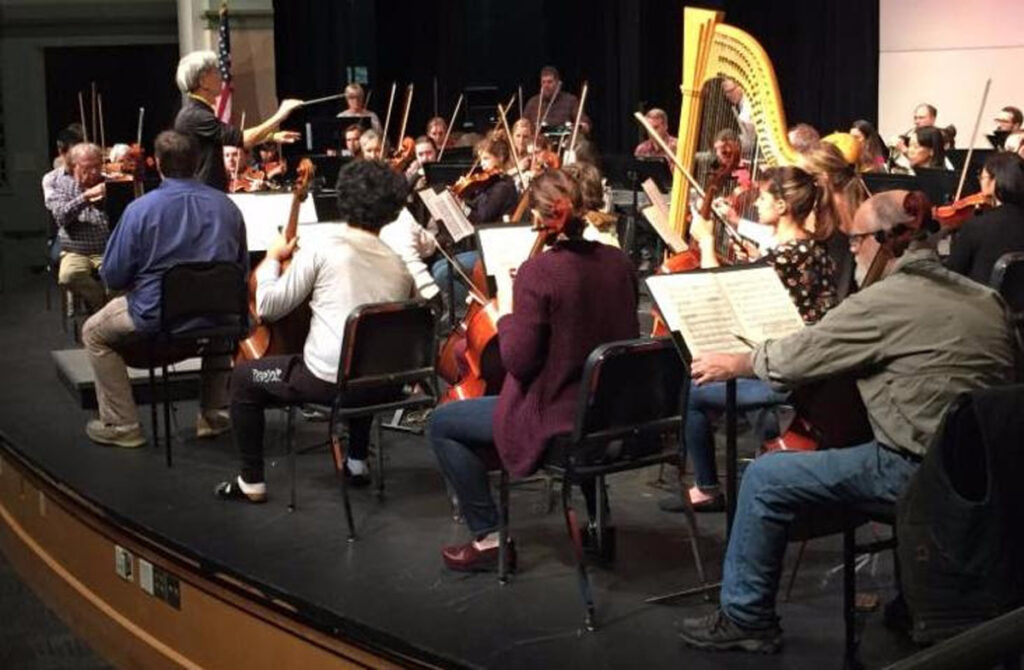
“The orchestra has a wonderful spirit, the love of music, the passion for what we do. It just has a wonderful feeling,” says Stephanie Stathos, the orchestra’s principal flutist and a member of the organization’s board.
On April 14, a group of five orchestra members, including Stathos, will perform a Musicians Unleashed program, called “Fantasies and Mythologies,” featuring pieces by Jules Mouquet, Claude Debussy, and more. On May 12, the full orchestra will perform “The Three Bs: Beethoven, Bizet, and Brahms.” Most of the symphony’s shows take place at the Manchester-Essex Regional High School in Manchester.
The orchestra’s goal is not merely to make beautiful music. The organization wants to help the community connect to and engage with the works it plays. The symphony’s annual youth education program works with local classrooms to introduce students to classical pieces. And, during concerts, Udagawa takes time to share some background about the music the audience is about to hear.
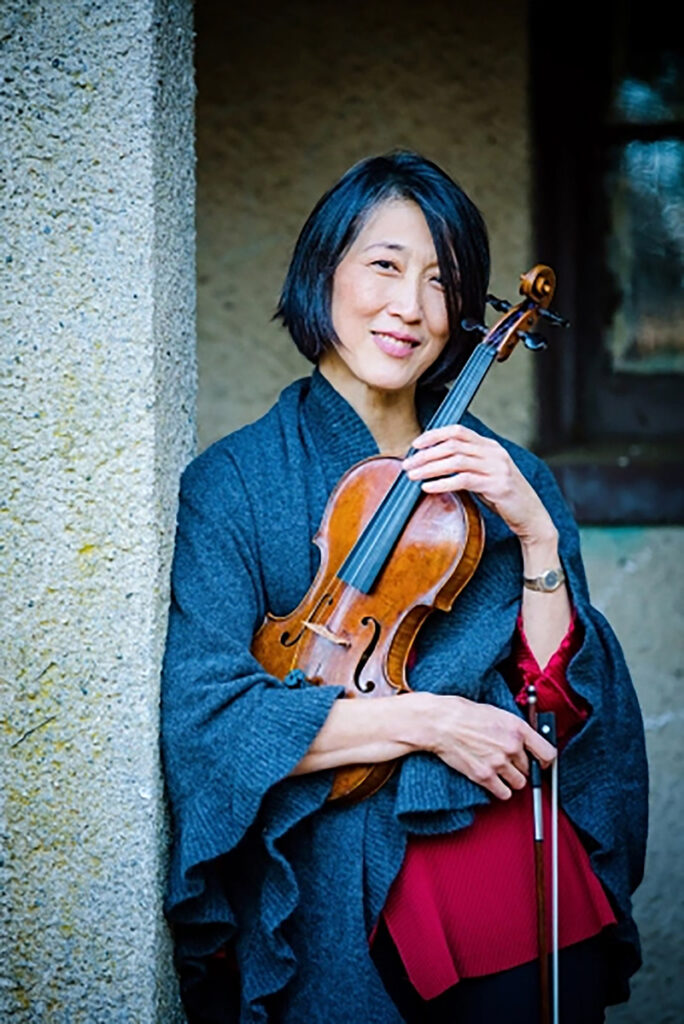
“We like to say we like to share the joy of music, but part of that joy comes from having a better understanding of what’s being performed,” Udagawa says.
Though the symphony is focused on community and education, it doesn’t sacrifice quality for the sake of mission. Udagawa, who came to the symphony in 2000—“to have the chance to become the conductor was a great thrill,” he says—has been widely hailed for his emotionally evocative work and his skill at communicating with audiences to help them better understand the music. And every musician in the orchestra is a paid professional, many of them among the top freelance players in the greater Boston region, which is known for its competitive and talented classical music scene, Stathos says.
“The orchestra is playing at such a high level,” Udagawa says. “The quality of the musicians today in the orchestra, it’s staggering.”
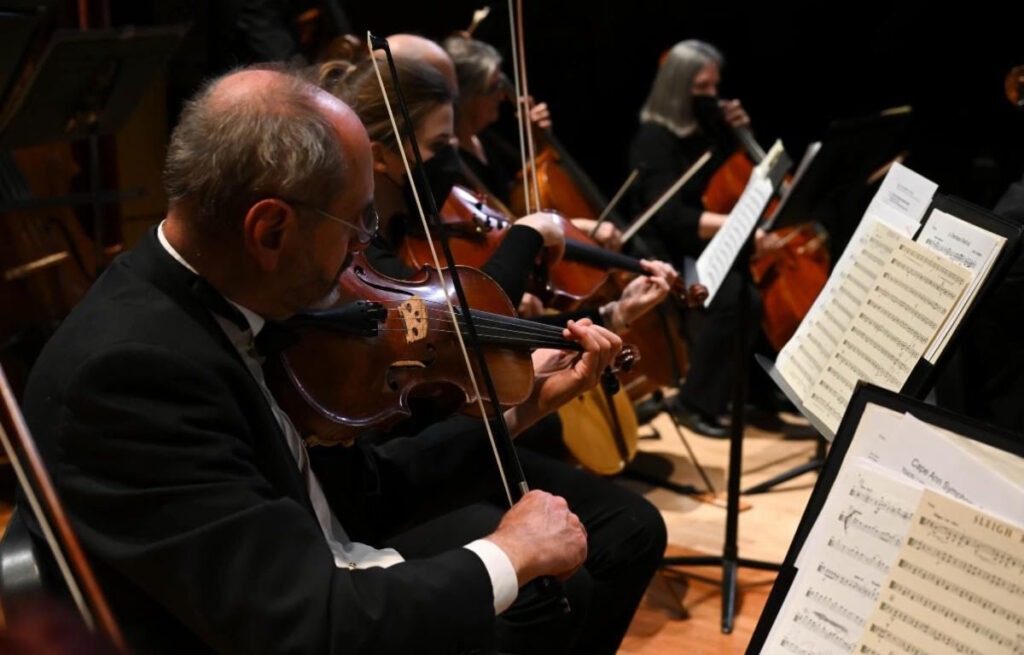
The reputation of the Cape Ann Symphony is strong enough to attract notable guest performers including Grammy winners, members of the Boston Symphony Orchestra, and teachers from top music conservatories. May’s show will feature violinist Lucia Lin of the Boston Symphony Orchestra.
And presiding over it all will be Udagawa, who still, more than two decades on, overflows with excitement for his job, the performers he works with, and the music they make.
“When you’re right there standing in front of those musicians, and the sound is coming at you from every direction . . . playing music written by some of the greatest musical geniuses of all times, it’s like flying,” Udagawa says. “It’s an incredible high.”

